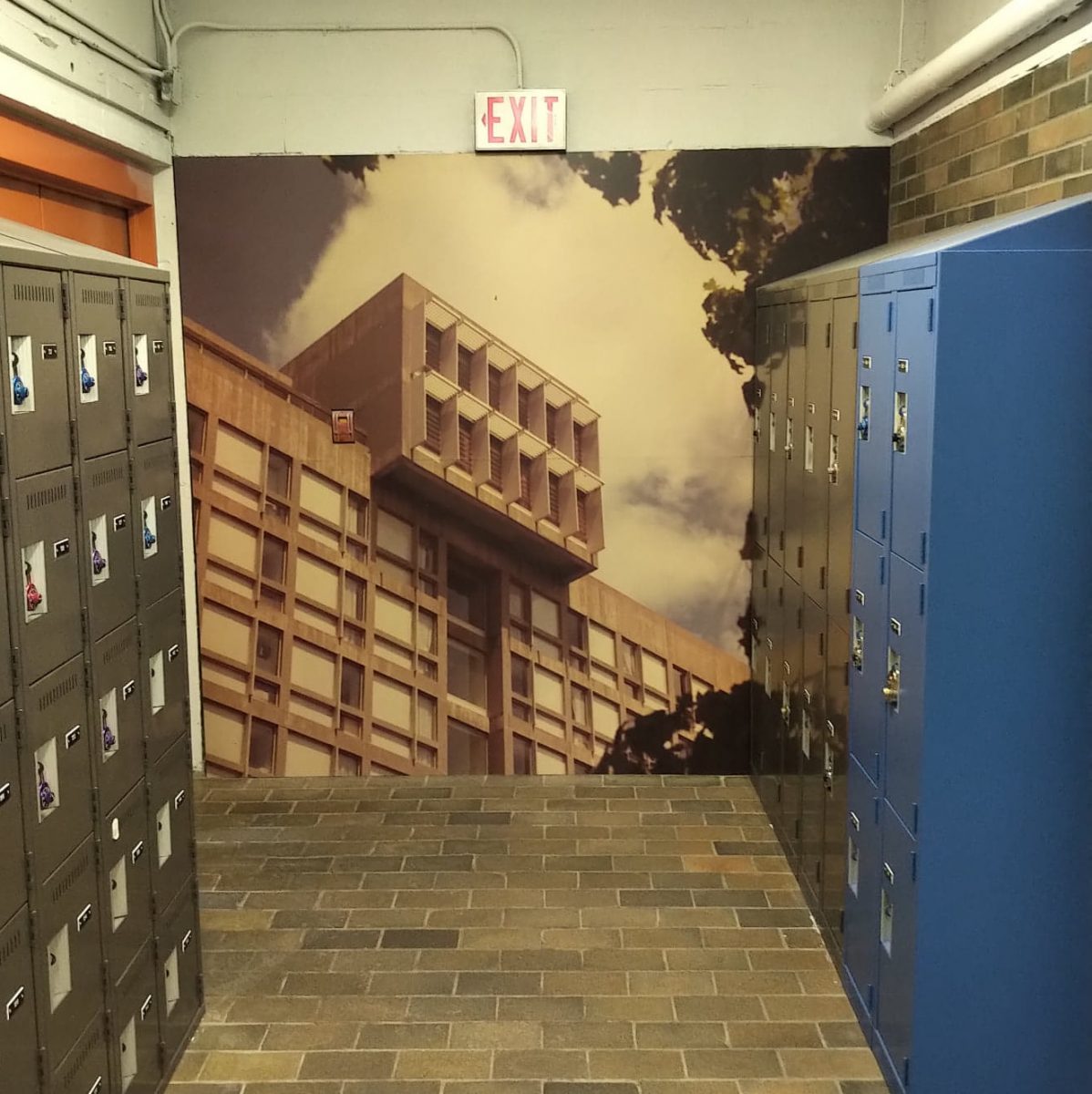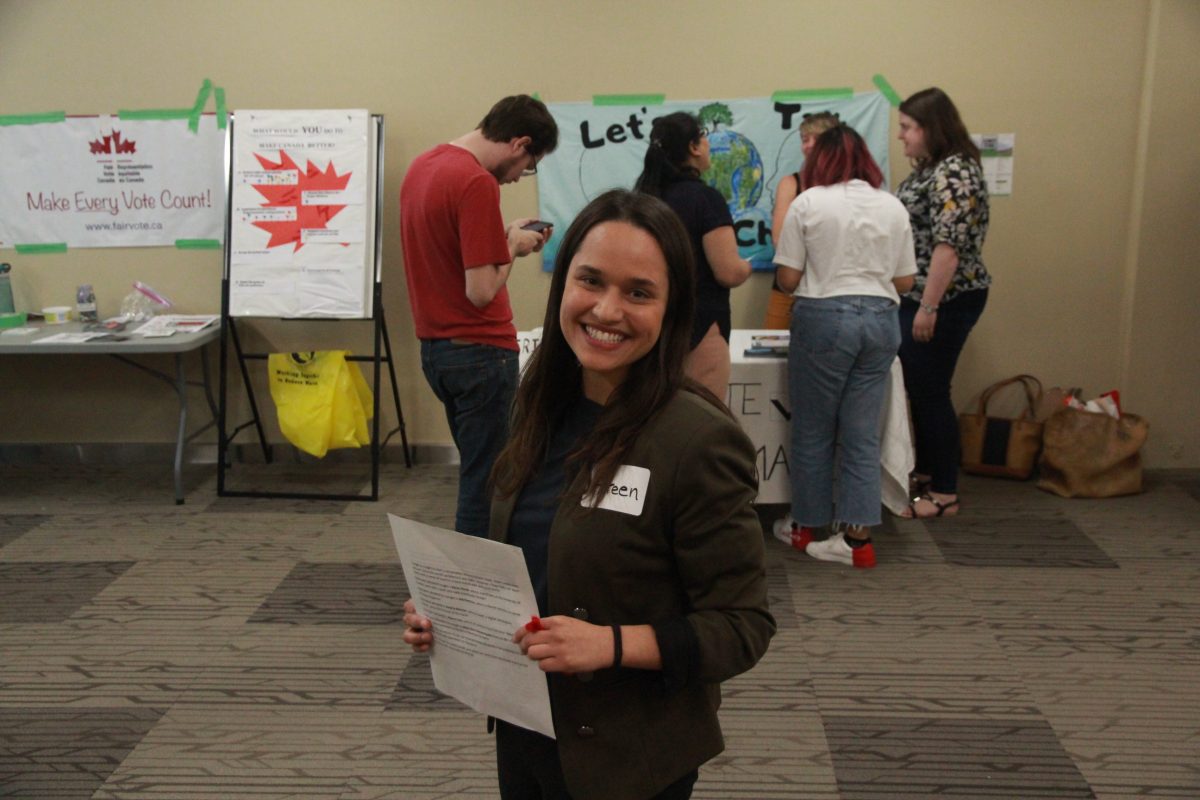COVID-19 has changed society as we know it.

Jack Fisher/Defunct Mayhem
Most students in Canada have returned home and, for the most part, on-campus staff have been instructed to social distance.
Institutions and operations that tend to be predictable and normal are now shifting to accommodate a society that lives at home.
University and College groups are some of the businesses and workplaces affected dramatically by these changes.
Post-secondary education draws hundreds of thousands of students away from home for school.
With no on-campus students to support in person, many things have moved online.
“Moving to online formats has been a little tricky, and has resulted in limited face to face interactions with students,” says Horeen Hassan, VP External at the U of Guelph Central Student Association. “However from an administrative/operational perspective, I’ve noticed that meetings between co-workers and University Admin have been occurring more often and with slightly more participation and attendance.”
Hassan said she thinks working from home has made it easier for her co-workers who often have an uncertain work-schedule, to attend early morning meetings.
Classes have also moved online. This has caused a selection of new problems. Students who returned home to a different timezone have had to change their schedules.
“We’ve heard of international students who are having issues with timezones and class times (for example, a 3 p.m. class in Canada is 3 a.m. in China),” said Kayla Weiler, National Executive Representative for the Canadian Federation of Students-Ontario (CFS-O).

Alora Griffiths/The Ontarion
Students across the country who live in rural areas are attempting to connect to their classes via slow or overloaded internet connections.
Student unions and associations across the province are attempting to advocate on behalf of students’ needs.
A teacher on Twitter was sure to make it clear that this is not an ideal e-learning curriculum.
“To simply call it a move to online teaching doesn’t recognize the finesse & planning online learning demands to be most effective. & we haven’t had time to anticipate unforeseen challenges,” tweeted secondary-school teacher, Margie Keats.
This can't be repeated enough:
— M. Keats (@ms_keats) April 1, 2020
"This is emergency response teaching during a crisis"
To simply call it a move to online teaching doesn't recognize the finesse & planning online learning demands to be most effective. & we haven't had time to anticipate unforeseen challenges. https://t.co/4aAfvtu0UQ
As a result, many student unions have begun pushing for technology access and a change to the grading structure.
“Several institutions have introduced a pass/fail option for students so that this semester grades won’t affect their GPA,” said Weiler. “Campuses have also kept residences open for those who cannot return home; particularly International students and out-of-province students.”
Some student groups, like the University of Windsor Student Association, are still pushing to have these measures put in place.
“The UWSA’s position hasn’t changed. Students should have peace of mind now rather than go through remaining coursework/exams. We believe that if you’ve completed at least 60% of the work, you should be able to use the Pass/Non-Pass option,” said UWSA President Jerimiah Bowers, in a statement on Facebook. “This is especially important for graduating students, who have increased anxiety from COVID-19 and their post-grad future, who can’t [voluntarily withdraw] from a mandatory course.”
Weiler said that, at the University of Toronto, the Association of Part-time Undergraduate Students (APUS) has created a laptop loan program for students for the time of quarantine.
“Many students can only access computers at the library and this service was created to fill that void,” she noted.
Student services have been largely impacted by the shutdown, and student groups are enacting policies like the laptop lending program reflexively.
“We’re still around and we’re planning so many virtual events,” said Jessica Marshall, the Sheridan Student Union TRC VP, on Twitter, “If you do need anything, please reach out.”
Jessica, our VP from Trafalgar, has a furry friend joining in on her message to you! 🐱 We hope that those of you who are quarantined with your pets right now, are enjoying the comfort that they provide. #TogetherAtHome #SheridanLife #SheridanCollege pic.twitter.com/7vazECF6WL
— SheridanStudentUnion (@the_ssu) April 2, 2020
Student Union services like SafeWalk programs, and legal help have ben shuttered for the rest of the semester Both Hassan and Weiler noted the pressure this pandemic has put on student foodbanks. Foodbanks are still an essential service for many students who live below the poverty line.
“It is a struggle to operate the service while also keeping distance,” said Weiler. “Many student foodbanks have altered their hours but also their operations, either to one person in a room at a time, or a delivery service rather than a drop-in.”
The University of Guelph’s Central Student Association (CSA) is one example of a group that has taken its Student Foodbank in a new direction.
“Due to university closures, it’s been difficult to meet student needs without compromising their health and safety. We have been distributing gift cards to grocery stores rather than distributing food from the food bank, said Hassan. “Once we have moved passed the peak of COVID-19 and when it’s safe to do so, we hope to continue to distribute food from the food bank. We plan to distribute through a hamper system and appointments to ensure distance between visitors.”

Jack Fisher/Sheridan Sun
With an eye to the future, all parties acknowledge that the school year will soon come to an end, and that will only bring more challenges to post-secondary students.
“There is more than can be done, such as additional funds to OSAP grants since the summer job market has changed for students.” Said Weiler. “The CFS has outlined some actions that institutions and the federal and provincial gov’t can do to help students during this pandemic.”
